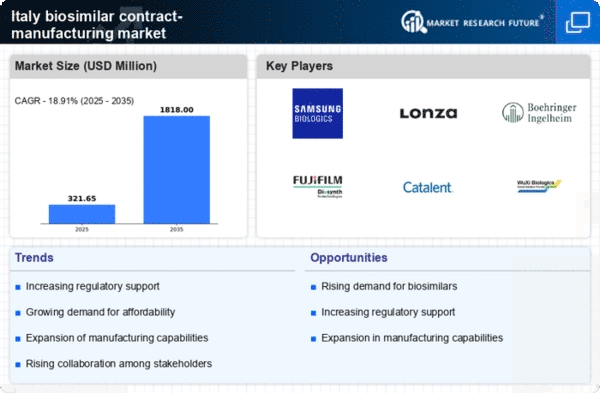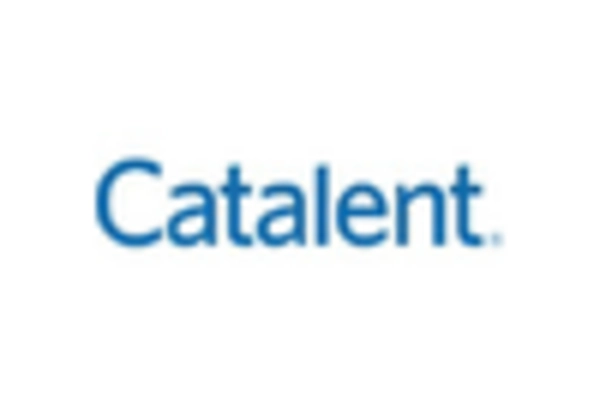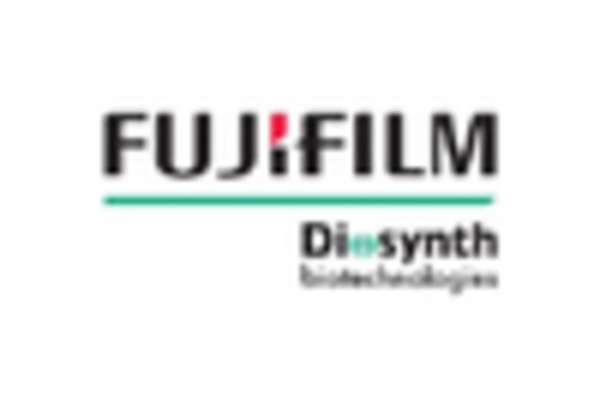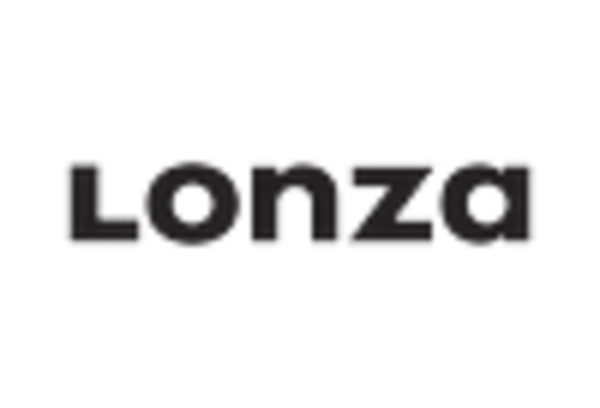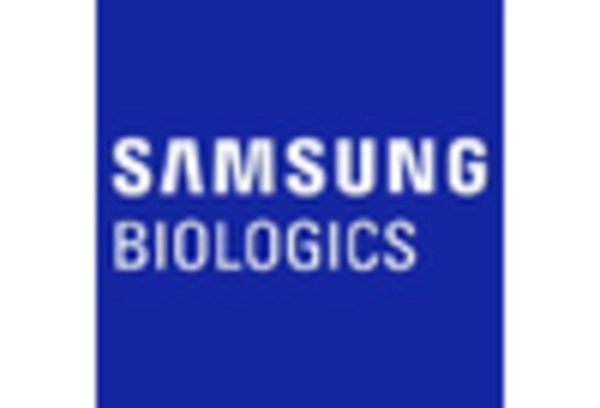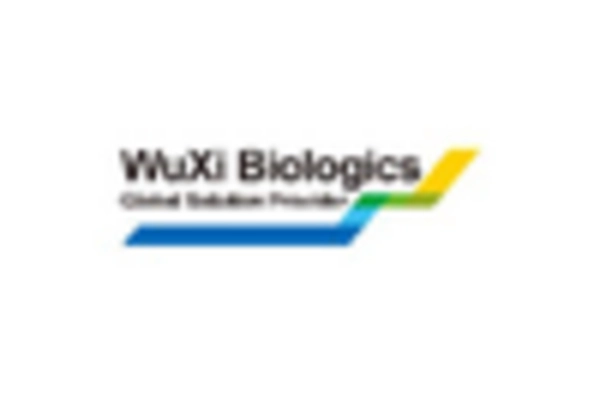Regulatory Framework Enhancements
The evolving regulatory framework in Italy plays a crucial role in shaping the biosimilar contract-manufacturing market. Recent initiatives by regulatory bodies aim to streamline the approval process for biosimilars, thereby fostering a more conducive environment for market entry. The Italian Medicines Agency (AIFA) has implemented guidelines that facilitate faster assessments and approvals, which could potentially reduce time-to-market for new biosimilars. This regulatory support is expected to encourage more companies to engage in contract manufacturing, as they seek to navigate the complexities of biosimilar development. Furthermore, the alignment of Italian regulations with European Union standards enhances the credibility of biosimilars, making them more appealing to healthcare providers and patients alike. As a result, the biosimilar contract-manufacturing market is likely to experience accelerated growth driven by these regulatory enhancements.
Rising Prevalence of Chronic Diseases
The rising prevalence of chronic diseases in Italy significantly drives the biosimilar contract-manufacturing market. Conditions such as diabetes, cardiovascular diseases, and autoimmune disorders are on the rise, leading to a higher demand for effective treatment options. The Italian healthcare system is under pressure to provide affordable therapies, and biosimilars present a viable solution. Market data indicates that the demand for biosimilars could rise by 25% by 2027, driven by the need for cost-effective alternatives to traditional biologics. This trend is prompting contract manufacturers to enhance their production capabilities to meet the anticipated surge in demand. As healthcare providers increasingly prescribe biosimilars, the biosimilar contract-manufacturing market is poised for substantial growth.
Increasing Demand for Cost-Effective Biologics
The rising demand for cost-effective biologics is a pivotal driver in the biosimilar contract-manufacturing market. As healthcare costs continue to escalate, stakeholders are increasingly seeking alternatives to expensive biologic therapies. In Italy, the biosimilar market is projected to grow, with estimates suggesting a potential increase of 20% in market share by 2026. This shift is largely attributed to the need for affordable treatment options, particularly for chronic diseases such as diabetes and cancer. Consequently, contract manufacturers are positioned to capitalize on this trend by providing efficient production solutions that meet the growing demand for biosimilars. The emphasis on cost reduction without compromising quality is likely to drive investments in contract manufacturing capabilities. This will enhance the overall landscape of the biosimilar contract-manufacturing market.
Collaborative Efforts in Research and Development
Collaborative efforts in research and development are emerging as a key driver in the biosimilar contract-manufacturing market. Partnerships between pharmaceutical companies and contract manufacturers are becoming more prevalent, as they seek to leverage each other's strengths in developing biosimilars. In Italy, these collaborations are expected to foster innovation and expedite the development process. By pooling resources and expertise, stakeholders can navigate the complexities of biosimilar development more effectively. This collaborative approach not only enhances the quality of biosimilars but also reduces time-to-market, which is crucial in a competitive landscape. As more companies recognize the benefits of collaboration, the biosimilar contract-manufacturing market is likely to witness increased activity and investment.
Technological Innovations in Manufacturing Processes
Technological innovations are significantly influencing the biosimilar contract-manufacturing market. Advances in bioprocessing technologies, such as single-use systems and continuous manufacturing, are enhancing production efficiency and scalability. In Italy, the adoption of these technologies is expected to increase, with market analysts projecting a growth rate of 15% in the next few years. These innovations not only reduce production costs but also improve product quality and consistency, which are critical factors in the biosimilar sector. As contract manufacturers invest in state-of-the-art facilities and equipment, they are better equipped to meet the stringent quality standards required for biosimilars. This technological evolution is likely to attract more pharmaceutical companies to outsource their biosimilar production, thereby expanding the biosimilar contract-manufacturing market.


